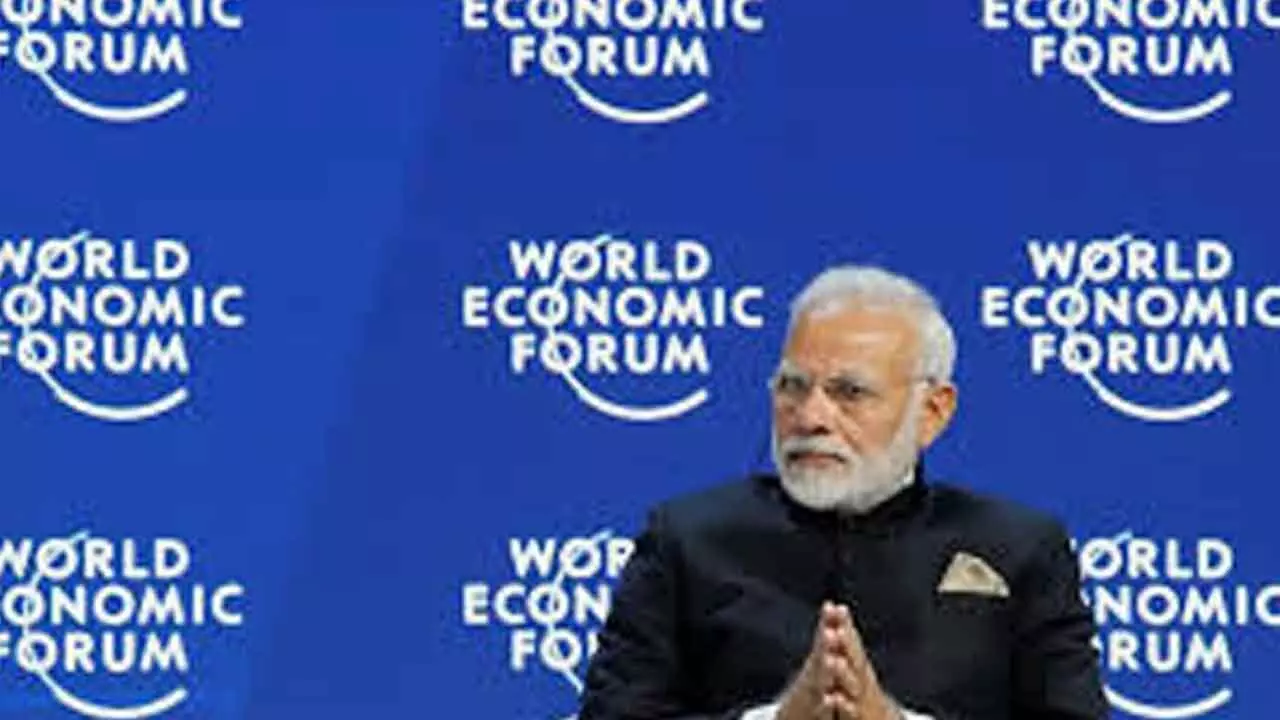India Frontrunner In Tech Evolution
Our partnership with India dates back over 40 yrs: WEF
India Frontrunner In Tech Evolution

Davos: In an era defined by technological evolution, India stands at the forefront as one of the world’s fastest-growing economies and a global hub for startups and digital innovation, the World Economic Forum said on Monday.
The Centre for the Fourth Industrial Revolution (C4IR) India, liaison office of World Economic Forum (WEF) in India, launches its 6-year impact journey report on the inaugural day of the WEF Annual meeting 2025 here. The WEF said its partnership with India dates back more than 40 years.
Over the past four decades, this relationship has developed into a strong, multifaceted and mean-ingful collaboration with the national government, several state governments, business leaders across key industries and other important stakeholders, including civil society and leading ex-perts, resulting in several impactful initiatives that have advanced shared priorities. India’s advocacy for and pursuit of developmental templates where technology serves as a bridge rather than a barrier are highly relevant and the Forum is proud to act as its partner in shaping a more human-centric, planet-friendly and resilient future, the foreword of the report said.
The Centre for the Fourth Industrial Revolution (C4IR) India was launched in 2018 by Prime Minis-ter Narendra Modi as a statement of the country’s commitment to harnessing emerging technolo-gies responsibly and inclusively for societal good.
Today, C4IR India is not just a hub for innovation; it is a flagship centre of the World Economic Forum, exemplifying a vision for technology-driven development with impactful, on-the-ground results, the Forum said.
As C4IR India enters the next phase of its journey, the new report highlighted key milestones and emphasized the importance of multi-stakeholder collaboration in scaling technologies to ad-dress complex developmental challenges. C4IR India said its accomplishments include AI-driven agricultural programs that boost farmers’ incomes, healthcare solutions that provide access to life-saving services, and sustainable urban development frameworks that improve the quality of life in cities. These initiatives have been made possible through strong partnerships across the public and pri-vate sectors, academia, and civil society, with a focus on creating practical solutions grounded in responsible governance, it added.

